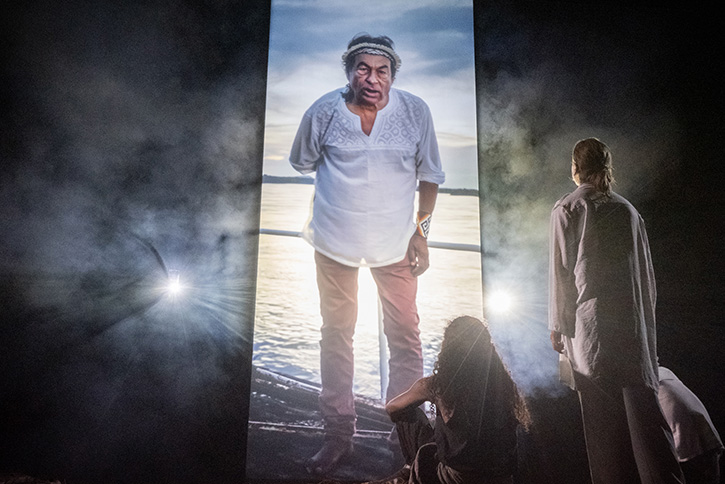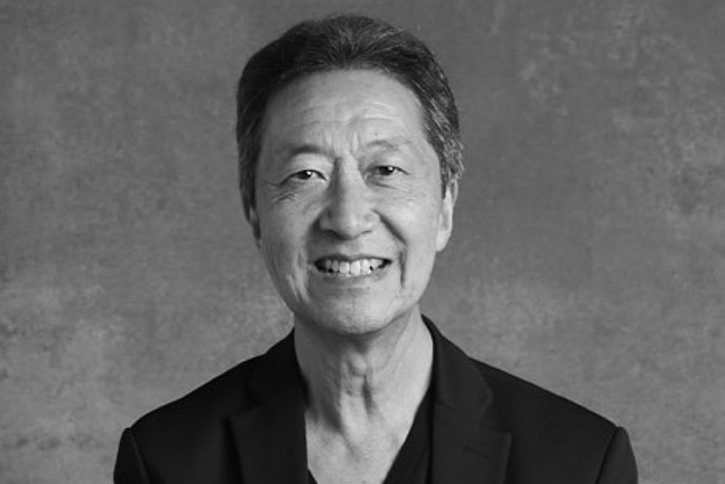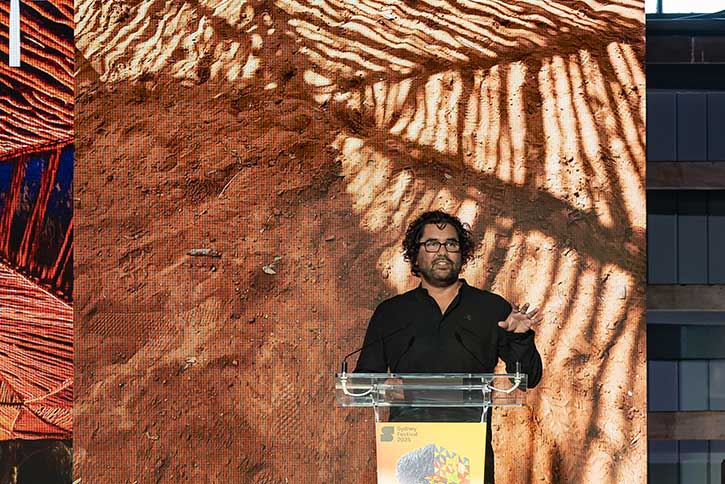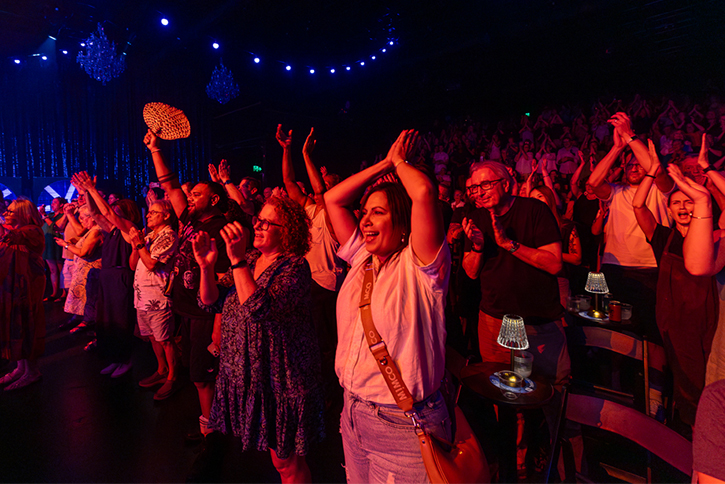Theatre meets activism in Antigone in the Amazon – a classical tragedy reimagined at the edge of the rainforest. We’ve unpacked everything you need to know about this political allegory, from the harrowing real-life events in Brazil to its heroine, Antigone.
What’s the story?
Created by the award-winning Swiss director and playwright Milo Rau in collaboration with Brazil’s Landless Workers’ Movement and the Belgian theatre company NTGent, Antigone in the Amazon draws a line connecting an ancient Greek tragedy of a young woman who defied a despotic king to present-day activists and First Nations people working to save the Amazon rainforests.
At the production’s heart is a real-life incident: the 1996 massacre of activists from the Landless Workers’ Movement by a unit of Brazilian federal police. A peaceful blockade of a highway ended bloodily, with 19 of the protestors killed.
In Rau’s retelling of the story, a modern-day Antigone stands up for those advocating land rights in the Amazon. Marshalled against her is the apparatus of a corrupt state. The tragedy is that of the Amazon itself – and by extension that of humanity. Not for nothing has the Amazon been likened to “the lungs of the planet”. 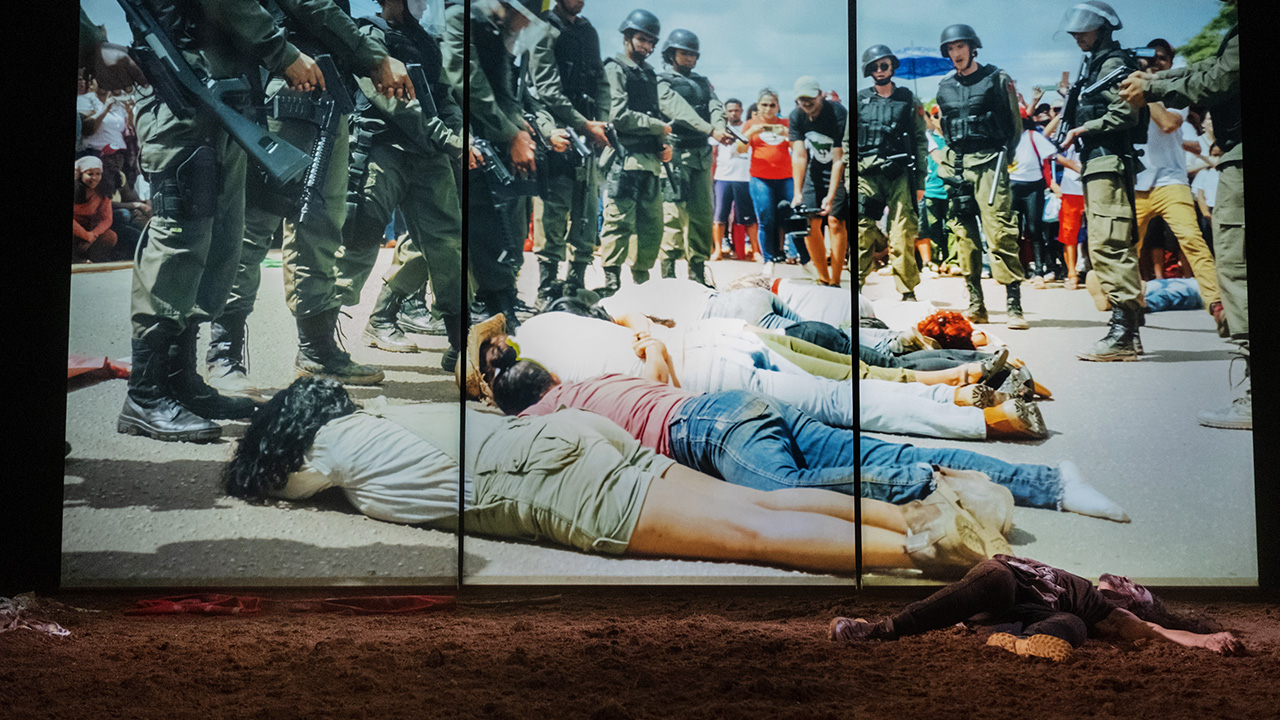
A tragedy unfolding
Underlying Antigone in the Amazon are sobering facts: Over the last 40 years, this great tract of rainforest has been under continual attack. Clearing began in the 1960s and peaked in the 90s, when an area the size of Spain was cleared to make space for cattle and soybean farms. By 2018, 17 percent of the Amazon had been lost to commercial use – farming, ranching, mining, roadbuilding. Its degradation continues to this day.
Speaking to Italy’s La Republica, Rau said: “The ‘real tragedy’ of our time is that we don’t have any means to describe it, or better: we describe the tragedy we are living in – the ecological, cultural tragedy. We know the problems, but we don’t find the link to direct, collective action.”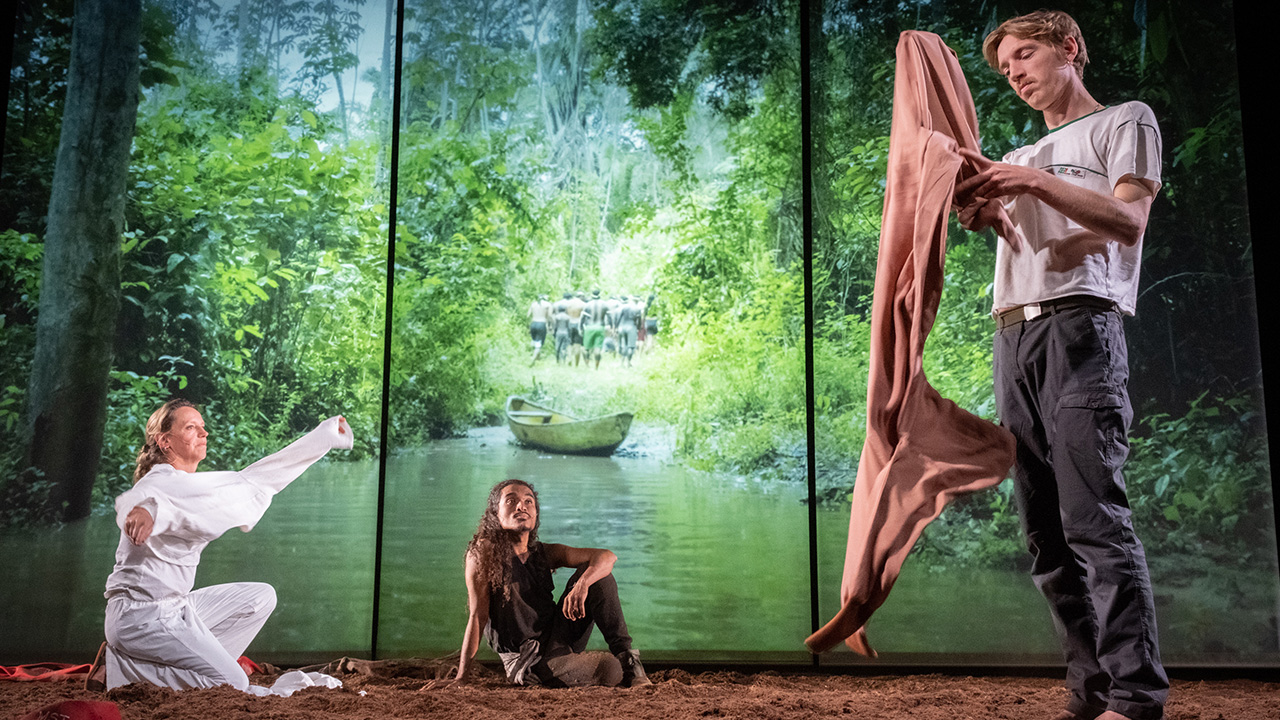
Playing by the rules
Part theatre performance, part documentary film and historical re-enactment, Antigone in the Amazon is made by the rules of the Ghent Manifesto: 10 commandments for all NTGent productions subject under Rau’s leadership. The First Commandment reads: “It’s not just about portraying the world anymore. It’s about changing it.”
Classic plays are forbidden, unless the source text adds up to no more than 20 percent of an adaptation, and in every cast, at least two people have to be non-professional actors. In this case, Antigone is played by Kay Sara, an Indigenous activist from Lauaretê, a small Amazonian community close to the border of Brazil and Columbia. Her name means “one who cares for others”.
Performed in Sydney for the first time, Antigone in the Amazon is theatre with a mission, a work in which, according to the New York Times, [Rau has] “perfected the art of bringing real events onstage, by laying bare the process and inviting audience members to think along.” 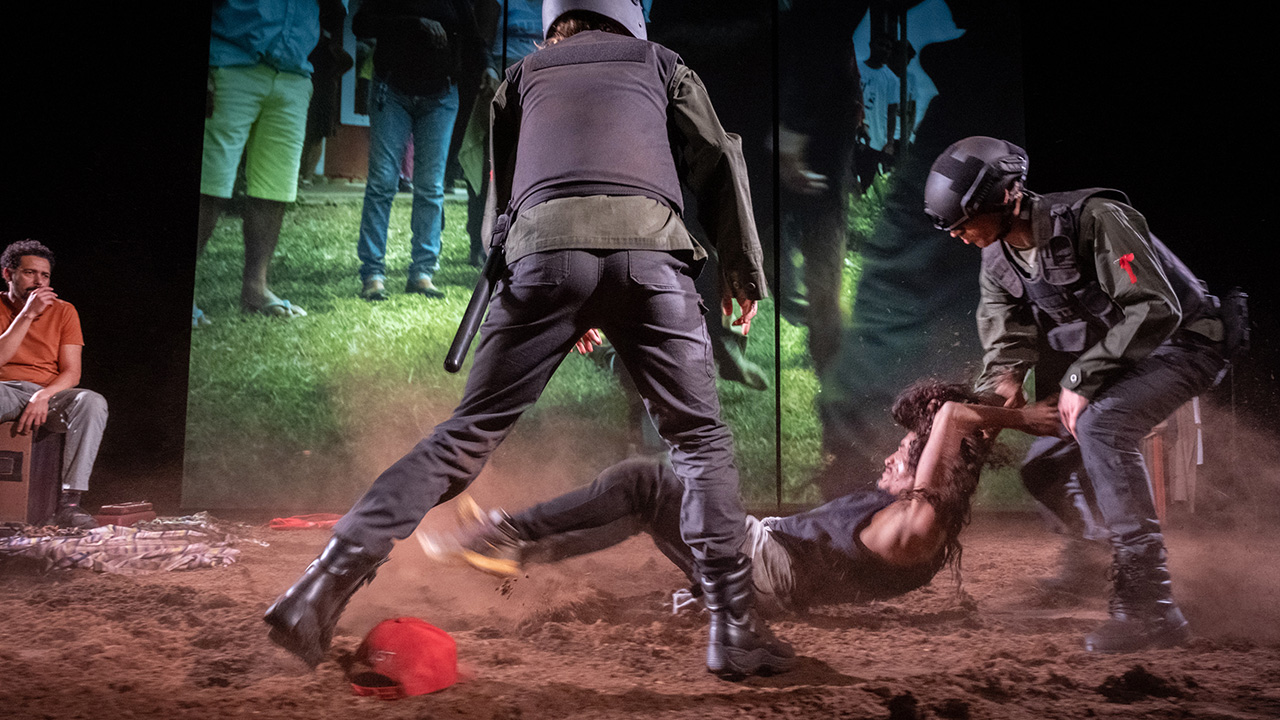
Antigone in the Amazon
4 – 8 JAN
Roslyn Packer Theatre (The Thirsty Mile)
“Many things are monstrous, but nothing is more monstrous than man.” Such is the wisdom of the most timeless play in the ancient canon, Sophocles’ Antigone. Now this Greek play speaks more loudly than ever in Swiss theatre-maker and agitator Milo Rau’s adaptation, which restages Antigone as a global endgame on the edge of the Amazon rainforest in Pará, Brazil.

